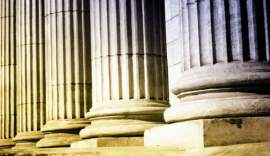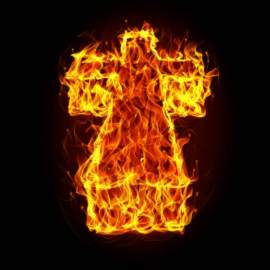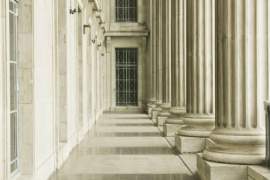
Busey v. District of Columbia

Busey v. District of Columbia
In the 1940s, some of the biggest religion related Supreme Court cases were started by Jehovah's Witnesses. The Jehovah's Witness sect began to distribute tracts and performing a practice referred to as “street corner witnessing” in 1940. In order to perform this type of witnessing, Jehovah's Witnesses would give or sell religious pamphlets and books to people passing by on the street. The District of Columbia implemented a licensing requirement for people who wanted to distribute any type of literature, including religious literature, on Washington D.C. sidewalks. This licensing requirement would be ruled unconstitutional by the Supreme Court in 1943.
Busey's Pamphlets
At the time when Busey's case began, Jehovah's Witnesses had only fairly recently begun to have Witnesses working to distribute literature in public on sidewalks. This practice attracted a great deal of negative attention from municipal governments around the country. In many municipalities, new laws were enacted that required people to purchase a license or permit to sell or give away literature. Some of these laws allowed for revocation of the license with or without cause. In other states, old statutes that had long since fallen into disuse were brought up again, and required itinerant salespeople of all types to obtain a license.
Busey and another Witness were on a street corner in Washington DC and sold magazines that promoted their religious beliefs. They did not pay the tax that was owed according to the District, and they were fined for this. They sued, alleging that their First Amendment rights to freedom of the press and free expression of religion had been violated, as well as their Fourteenth Amendment right to due process.
Was the DC Tax Constitutional?
1943 marked a turning point for the Supreme Court in deciding Jehovah's Witness cases. Just a year before, the court had ruled that content neutral licensing fees for sales of books could be constitutionally sound. However, 1943 saw that case's decision reversed, with the court determining that religious materials being sold or given away was a matter of protected free expression of religion, rather than a commercial enterprise that could constitutionally be taxed or licensed.
The reasons for the court's switch are unclear, but perhaps it had something to do with the huge number of cases that they received from municipalities all over the nation, each involving a plaintiff specifying a new, specific law was unconstitutional.
The Supreme Court Ruling
The Supreme Court, in keeping with its new policy of forbidding taxation or licensing of religious tract distribution, ruled in Busey v. District of Columbia that the statute Busey was accused of violating was not constitutional. The court cited several of the cases it had decided during that season, including Jones v. City of Opelika, by way of explaining its decision. The actual ruling in this case is relatively short, and mostly consists of making references to the other cases in which the court's rationale is more clearly explained.



















